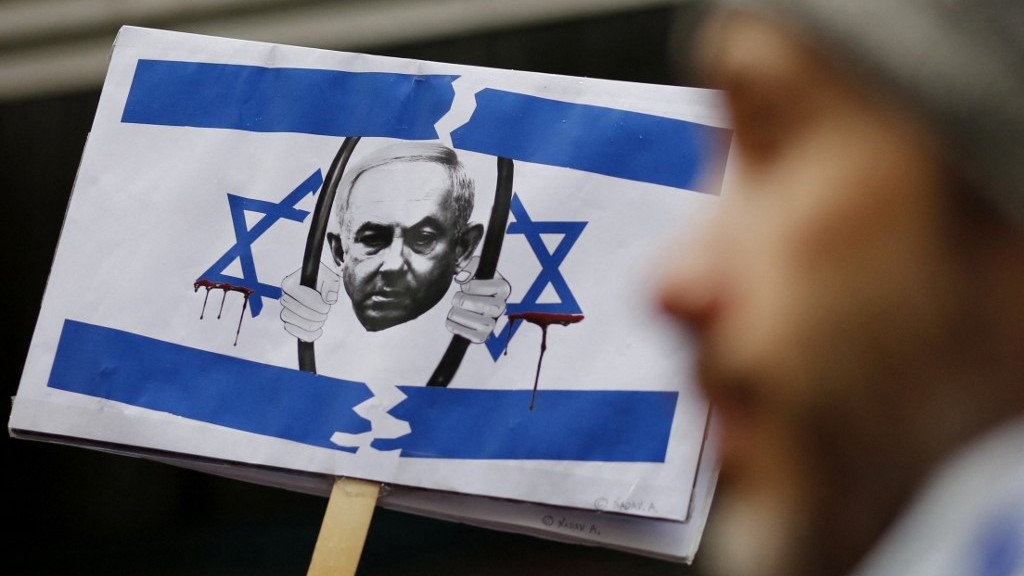Israel's judicial overhaul is crippling everyday governance, experts say

Prime Minister Benjamin Netanyahu’s decision to overhaul the judiciary has caused chaos in Israel and its foreign policy, experts said.
“What’s been changing? Other than everything?” Barak Ravid, an Israeli journalist and commentator said at a Zoom webinar at the Middle East Institute.
“The fact is that this government in its first few months is totally dysfunctional and chaotic, and almost any step it takes does not come out of initiative but out of reaction to events.”
The judicial overhaul measures were approved by the Israeli parliament's legislative committee in February and have provoked widespread criticism and charges that they would give the legislative branch nearly unchecked authority.
Since then, tens of thousands of Israelis have demonstrated across the country in the 10th consecutive week of protests against government judicial reform plans critics view as a threat to democracy. The biggest demonstration, which took place in Tel Aviv, drew some 100,000 protesters, according to estimates given by Israeli media.
Plans for the judicial overhaul were put on pause after strikes and protests crippled the country earlier this week.
'He's done nothing'
Maya Sion-Tzidkiyahu, an adjunct lecturer at the European Forum of the Hebrew University, says Israel under Yair Lapid ran much more smoothly than the way Netanyahu is governing it.
“After a long decade of really bad political relations that have really deteriorated under Netanyahu, the last one and a half years of government under [Yair] Lapid as foreign minister and then prime minister was a substantial improvement,” she said at the Zoom meeting.
While forming a government, Netanyahu defended the inclusion of far-right groups in his alliance, which have today caused a series of controversies not just domestically but also between Israel and its allies like the US.
“They’re joining me, I’m not joining them,” he said in an NPR interview. “I’ll have two hands firmly on the steering wheel. I won’t let anybody do anything to LGBT [people] or to deny our Arab citizens their rights or anything like that.
But according to Ravid, that has not been the case. Netanyahu is “not running anything”, he said.
The Israeli prime minister has said that he would openly counter the Iran nuclear deal and would work to expand the Abraham Accords. He also said that his government was working on a peace deal with Saudi Arabia.
“But in the last three months, he’s done nothing. Not on the first foreign policy goal, not on the second goal,” Ravid said. “This is because everything in Israel is consumed by this judicial overhaul which basically hijacked the government's agenda.”
Middle East Eye propose une couverture et une analyse indépendantes et incomparables du Moyen-Orient, de l’Afrique du Nord et d’autres régions du monde. Pour en savoir plus sur la reprise de ce contenu et les frais qui s’appliquent, veuillez remplir ce formulaire [en anglais]. Pour en savoir plus sur MEE, cliquez ici [en anglais].





